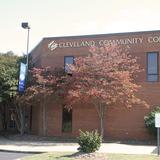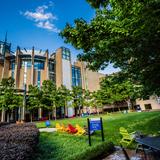- Gaston College, located in Gaston and Lincoln Counties, is an open door, comprehensive, public community college that promotes lifelong learning and economic development through high quality educational programs and services.
School Highlights
Gaston College serves 7,071 students (22% of students are full-time).
The college's student-teacher ratio of 13:1 is same as the state community college average of 13:1.
Minority enrollment is 57% of the student body (majority Black), which is more than the state average of 48%.
Quick Facts (2026)
- Enrollment: 7,071 students
- In-state tuition: $2,560
- Out-state tuition: $8,704
- Student-teacher ratio: 13:1
- Minority enrollment: 57%
- Source: Integrated Postsecondary Education Data System (IPEDS)
Top Rankings
Gaston College ranks among the top 20% of public schools in North Carolina for:
School Overview
The teacher population of 525 teachers has stayed relatively flat over five years.
Gaston College
(NC) Community College Avg.
Carnegie Classification
Associate's Colleges: Mixed Transfer/Career & Technical-High Traditional
Associate's Colleges: Mixed Transfer/Career & Technical-High Nontraditional
Institution Level
At least 2 but less than 4 years
At least 2 but less than 4 years
Institution Control
Public
Public
Total Faculty
525 staff
256 staff
School Calendar
Student Body
The student population of Gaston College has grown by 32% over five years.
The student-teacher ratio of 13:1 has decreased from 21:1 over five years.
The Gaston College diversity score of 0.69 is more than the state average of 0.66. The school's diversity has grown by 31% over five years.
Total Enrollment
7,071 students
2,579 students
Student-Teacher Ratio
13:1
13:1
# Full-Time Students
1,539 students
766 students
# Part-Time Students
5,532 students
1,813 students
# Enrollment Undergraduate
707 students
316 students
# Full-Time Undergraduate Students
1,539 students
766 students
# Full-Time Graduate Students
n/a
22 students
# Part-Time Undergraduate Students
5,532 students
1,990 students
# Part-Time Graduate Students
n/a
3 students
Total Dormitory Capacity
n/a
717 students
% American Indian/Alaskan
n/a
1%
% Asian
1%
3%
% Hispanic
8%
13%
% Black
12%
21%
% White
43%
52%
% Hawaiian
n/a
1%
% Two or more races
3%
3%
% Non Resident races
1%
1%
% Unknown races
32%
5%
Diversity Score
0.69
0.66
College Completion Rate (Students who graduate in less than 4 years)
43%
37%
College Completion Rate (Students who graduate in 4 years or more than 4 years)
n/a
43%
Average Graduate Earnings (10 Years)
$27,600
$27,500
Tuition and Acceptance Rate
The public in-state tuition of $2,560 is less than the state average of $3,915. The in-state tuition has declined by 5% over four years.
The public out-state tuition of $8,704 is less than the state average of $9,508. The out-state tuition has stayed relatively flat over four years.
In-State Tuition Fees
$2,560
$3,915
Out-State Tuition Fees
$8,704
$9,508
Tuition Notes
$76.00 per credit hour in-state, $268.00 per credit hour out-of-state
% Students Receiving Some Financial Aid
49%
82%
Median Debt for Graduates
$2,625
$8,546
Median Debt for Dropouts
$2,625
$4,500
Acceptance Rate
n/a
82%
SAT Reading
n/a
488
SAT Math
n/a
498
ACT Composite
n/a
20
ACT English
n/a
13
ACT Math
n/a
16
Source: 2024 (or latest year available) Integrated Postsecondary Education Data System (IPEDS) , School Administrators
School Notes
- Gaston College was granted a charter by the State of North Carolina in 1963 and began its first classes in temporary headquarters in September 1964. The college moved to its permanent campus on Highway 321 between Dallas and Gastonia two months later. Serving both Gaston and Lincoln counties, Gaston College enrolls over 5,000 students each term in curriculum programs and averages over 16,000 students annually in its Continuing Education programs. Part of the North Carolina Community College System, Gaston College is accredited by the Southern Association of Colleges and Schools to award associate degrees. The twelve major buildings that comprise the Gaston College Dallas campus contain approximately 450,868 square feet and have an estimated current value of $41,385,862. There is an efficient road system and parking for more than 2,000 cars. College facilities (including a 480-seat auditorium) are available for public use and may be scheduled through the Office for Finance and Facilities. Gaston College is a commuter institution and does not have dormitories or housing for rent. The purpose of the Arts and Sciences Division of Gaston College is to provide quality instructional opportunities in college parallel programs for students who intend to transfer to senior institutions and to provide support of technical and occupational program curriculums. The division serves as a community resource and promotes academic articulation with public/private schools, business/industry, and senior institutions. The Liberal Arts and Sciences Division offers a wide range of courses. Among these are art, criminal justice, technology, early childhood education, English, foreign languages, humanities, mathematics, music, the natural sciences, paralegal technology, and the social sciences.
Frequently Asked Questions
How much does Gaston College cost?
Gaston College's tuition is approximately $2,560 for In-State students and $8,704 for Out-State students.
What is Gaston College's ranking?
Gaston College ranks among the top 20% of community college in North Carolina for: Diversity in US community colleges and Largest student body.
Recent Articles

Most In-Demand Community College Majors for 2025–26
Explore the most in-demand community college majors for 2025–26 workforce needs, aligned with hiring trends, wages, and transfer pathways.

New Guidebook Helps Students Navigate Community College
A new guidebook offers practical strategies to help students and families succeed in community college, from admissions to transfer and career planning.

Work-Study Opportunities for Spring 2026 Guide
Learn how to secure work-study opportunities for Spring 2026 before classes start, including timelines, tips, and eligibility guidance.











